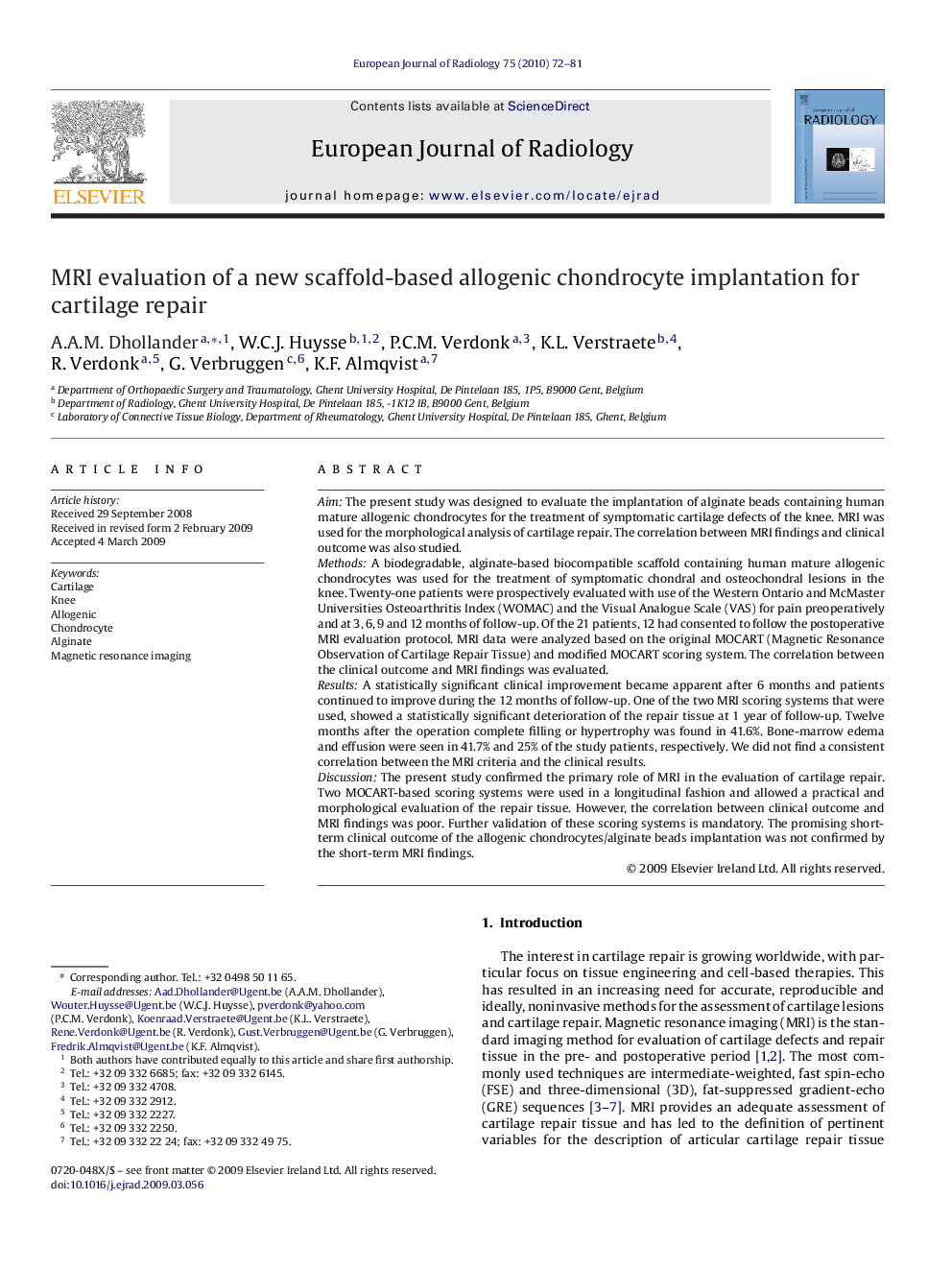| Article ID | Journal | Published Year | Pages | File Type |
|---|---|---|---|---|
| 4227144 | European Journal of Radiology | 2010 | 10 Pages |
AimThe present study was designed to evaluate the implantation of alginate beads containing human mature allogenic chondrocytes for the treatment of symptomatic cartilage defects of the knee. MRI was used for the morphological analysis of cartilage repair. The correlation between MRI findings and clinical outcome was also studied.MethodsA biodegradable, alginate-based biocompatible scaffold containing human mature allogenic chondrocytes was used for the treatment of symptomatic chondral and osteochondral lesions in the knee. Twenty-one patients were prospectively evaluated with use of the Western Ontario and McMaster Universities Osteoarthritis Index (WOMAC) and the Visual Analogue Scale (VAS) for pain preoperatively and at 3, 6, 9 and 12 months of follow-up. Of the 21 patients, 12 had consented to follow the postoperative MRI evaluation protocol. MRI data were analyzed based on the original MOCART (Magnetic Resonance Observation of Cartilage Repair Tissue) and modified MOCART scoring system. The correlation between the clinical outcome and MRI findings was evaluated.ResultsA statistically significant clinical improvement became apparent after 6 months and patients continued to improve during the 12 months of follow-up. One of the two MRI scoring systems that were used, showed a statistically significant deterioration of the repair tissue at 1 year of follow-up. Twelve months after the operation complete filling or hypertrophy was found in 41.6%. Bone-marrow edema and effusion were seen in 41.7% and 25% of the study patients, respectively. We did not find a consistent correlation between the MRI criteria and the clinical results.DiscussionThe present study confirmed the primary role of MRI in the evaluation of cartilage repair. Two MOCART-based scoring systems were used in a longitudinal fashion and allowed a practical and morphological evaluation of the repair tissue. However, the correlation between clinical outcome and MRI findings was poor. Further validation of these scoring systems is mandatory. The promising short-term clinical outcome of the allogenic chondrocytes/alginate beads implantation was not confirmed by the short-term MRI findings.
